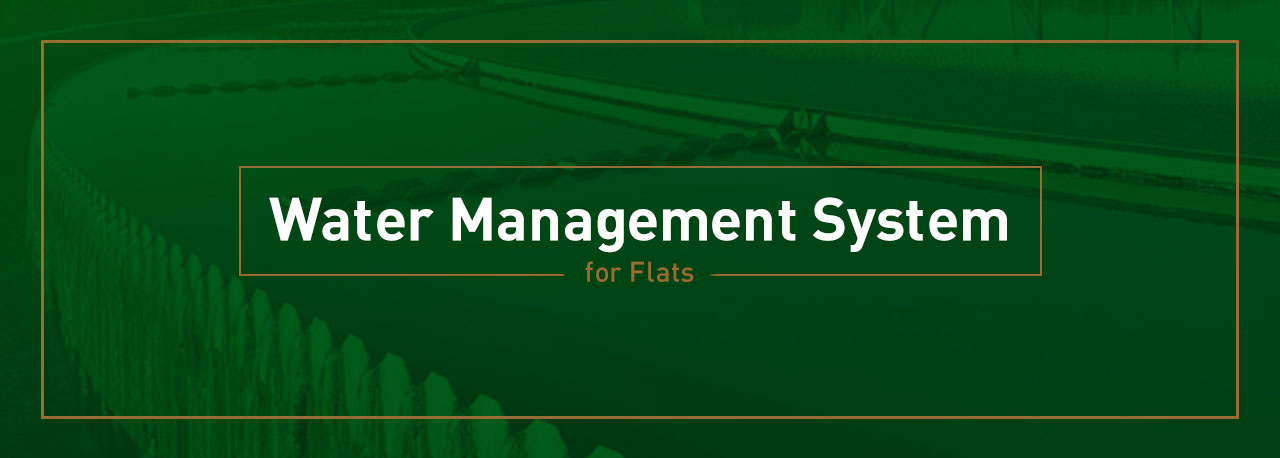Water is an essential resource, and managing it efficiently is crucial, especially in residential complexes like flats. As the demand for flats continues to rise, it becomes essential to implement effective water management systems to ensure sustainable usage and conservation. In this article, we will explore the significance of water management systems for flats, focusing on the context of flats for sale in Mohali and luxury flats in Mohali.
The Importance of Water Management Systems for Flats
Water management systems play a pivotal role in maintaining a sustainable and efficient water supply for flats. With the increasing population and urbanization, the demand for water has surged, placing significant pressure on water resources. Flats, being densely populated residential units, consume substantial amounts of water. Implementing water management systems becomes vital to address this issue effectively.
Benefits of Implementing Water Management Systems
Reducing Water Consumption
A well-designed water management system enables flats to optimize water usage and minimize wastage. By implementing various strategies like water-efficient fixtures and regular maintenance, overall water consumption can be significantly reduced. This reduction not only conserves water but also reduces the burden on the local water supply.
Cost Savings
Efficient water management systems can lead to substantial cost savings for both the residents and the housing society. By reducing water consumption, the monthly water bills can be significantly lowered. Moreover, proactive leak detection and repair practices prevent unnecessary expenses associated with water damage repairs.
Environmental Impact
Conserving water through effective management systems contributes to environmental sustainability. By minimizing water usage, we can conserve natural resources and reduce the energy required for water treatment and distribution. Additionally, water management systems that incorporate rainwater harvesting and recycling methods help mitigate the strain on freshwater sources.
Components of an Effective Water Management System
To ensure an efficient water management system for flats, several components should be considered:
Water Meters and Monitoring
Installing individual water meters for each flat allows accurate measurement of water consumption. Monitoring systems can track usage patterns and detect anomalies, enabling timely intervention in case of leaks or excessive water use.
Leak Detection and Repair
Regular inspections and maintenance help identify and repair leaks promptly. Leaks not only waste water but can also lead to structural damage and mold growth. Implementing proactive leak detection and repair practices is essential to minimize water losses.
Rainwater Harvesting
Incorporating rainwater harvesting systems enables flats to harness rainwater for non-potable purposes such as gardening, toilet flushing, and cleaning. This reduces the reliance on freshwater sources and promotes sustainable water use.
Water Recycling and Reuse
Implementing greywater recycling systems allows treated wastewater from showers, sinks, and washing machines to be reused for irrigation or flushing purposes. Recycling water reduces the demand for freshwater and ensures efficient utilization.
Designing Water-Efficient Flats
When constructing or renovating flats, water efficiency should be a primary consideration. Some key design aspects include:
Low-Flow Fixtures
Installing low-flow faucets, showerheads, and aerators can significantly reduce water consumption without compromising user experience. These fixtures restrict the flow rate while maintaining adequate functionality.
Dual-Flush Toilets
Dual-flush toilets provide two flushing options, one for liquid waste and another for solid waste. This allows users to choose the appropriate amount of water required for each flush, resulting in significant water savings.
Water-Efficient Appliances
Choosing water-efficient appliances such as washing machines and dishwashers can have a substantial impact on water conservation. Look for appliances with high Energy Star ratings and water-saving features.
Landscaping Considerations
Designing green spaces with native plants that require less water can minimize irrigation needs. Additionally, implementing efficient irrigation systems like drip irrigation can further reduce water usage for landscaping.
Educating Residents on Water Conservation
Raising awareness among residents about the importance of water conservation is crucial for the success of any water management system. Housing societies can organize awareness programs, workshops, and campaigns to educate residents about water-saving practices. Some tips to promote water conservation include:
- Encouraging shorter showers
- Fixing dripping faucets promptly
- Collecting and reusing rainwater for plants
- Running dishwashers and washing machines with full loads
Government Policies and Incentives
Government policies and incentives can play a significant role in promoting water management systems in residential complexes. Local authorities may offer tax incentives or subsidies for implementing water-saving measures. Staying informed about such policies can help housing societies and residents make informed decisions.
FAQs (Frequently Asked Questions)
1. Are water management systems expensive to install?
The cost of implementing a water management system can vary depending on the complexity and scale of the system. However, the long-term cost savings achieved through reduced water consumption often outweigh the initial investment.
2. Can rainwater harvesting be implemented in all types of flats?
Rainwater harvesting can be implemented in most types of flats, provided there is adequate space for storing rainwater and the necessary infrastructure for distribution and usage.
3. How can residents contribute to water conservation efforts?
Residents can contribute to water conservation by adopting simple practices like fixing leaks promptly, using water-efficient fixtures, and being mindful of their water consumption habits.
4. Are there any government incentives available for water-saving measures?
Some governments offer incentives such as tax rebates or subsidies for implementing water-saving measures. It is advisable to check with local authorities to explore available incentives.
5. Can water management systems be retrofitted in existing flats?
Yes, water management systems can be retrofitted in existing flats. A professional assessment of the plumbing system and infrastructure is necessary to determine the feasibility and design of the system.
Conclusion
Efficient water management systems are crucial for Beverly Golf Avenue to ensure sustainable water usage and conservation. By implementing strategies such as water metering, leak detection, rainwater harvesting, and water recycling, Beverly Golf Avenue can significantly reduce water consumption and contribute to environmental sustainability. Designing water-efficient flats and educating residents about water-saving practices are equally vital aspects of a comprehensive water management approach in Beverly Golf Avenue.







